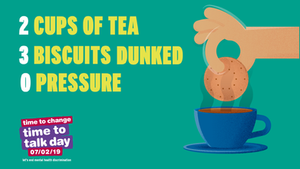Challenging Hate Crime: Understanding and accepting differences in others
- May 10, 2018
- 2 min read
Non-Judgement is Powerful Carl Rogers, the creator of Person Centred Counselling believed that six conditions were "necessary but sufficient" for change to occur. These conditions underpin the Person Centred Approach and one of these is Unconditional Positive Regard. As counsellors, we accept and support our clients exactly as they are without judging or evaluating them and this non judgmental condition is powerful to receive. However, unfortunately many people are experiencing the opposite of acceptance and non judgment, they are the victims of hate crime.
The CPS definition of Hate Crime is "criminal behaviour where the perpetrator is motivated by hostility or demonstrates hostility towards the victims disability, race, religion, sexual orientation or transgender identity. This criminal behaviour can include verbal abuse, intimidation, threats, harassment, assault, bullying and damage to property."
A rise in Hate Crime According to Home Office Statistics for England and Wales, there were 80,393 offences of hate crime reported to police in 2016/17 where one or more hate crime strands were deemed a motivating factor. This was an increase of 29% from 2015/16, with rises seen around the time of the EU referendum and following the Westminster Bridge attack on 22/3/17.
Hate Crime amongst Children More shockingly though, the NSPCC has flagged up an increase in hate crime in children and young people with police recording 5349 cases in 2016/17 which was up 14% from 2015/16. The NSPCC provided 2700 counselling sessions in the last 3 years around race and faith based bullying, a quarter of which were for children under 11. They have now started a new campaign called "Understand Me" to try and encourage young people to challenge racism and prejudice. If we can improve understanding and accept each others differences then hopefully we could see these figures decrease and less children will grow up judging each other.
If you have been a victim of hate crime or for more information please see www.nspcc.org.uk/what-we-do/news-opinion/childline-discrimination-understand-me








Comments